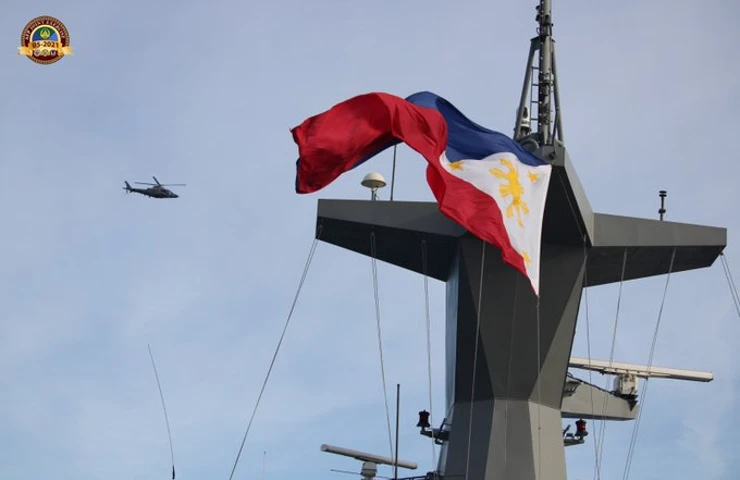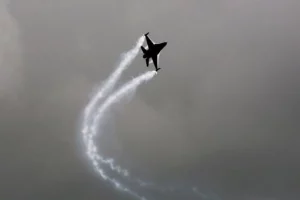Tensions between China and the Philippines are running high after a Chinese Coast Guard ships blocked the passage of Philippines boats taking supplies to its military personnel in the disputed Spratly Islands in the South China Sea (SCS).
On Thursday, the Philippines government said that Chinese Coast Guard vessels fired water cannons at its boats in the SCS and ordered Beijing to “back off.” Foreign Secretary Teodoro Locsin said he had expressed “outrage, condemnation and protest” to Beijing over the incident, which happened when the Philippine boats were sailing to the Second Thomas Shoal in the Spratly Islands.
[1] The Western Command in Palawan reports that on 16 November 2021, three (3) Chinese Coast Guard vessels blocked and water cannoned two (2) Philippine supply boats en route to transport food supplies to Philippine military personnel in Ayungin Shoal (Second Thomas Shoal).
— DFA Philippines (@DFAPHL) November 17, 2021
The Philippines ministry of foreign affairs issued a series of tweets highlighting Chinese aggression in the region.
The Philippines boats had to return without delivering food supplies to the military personnel.
Locsin said that the Chinese act was illegal.
He also warned Beijing that the civilian boats were covered by a mutual defence pact with the US. “China has no law enforcement rights in and around these areas. They must take heed and back off”, Locsin said.
Barely three and a half months back, the Philippines had signed the pact–the Philippines-United States visiting Forces Agreement–that allowed US land and naval forces to operate in the Philippines. Though Manila had been cold-shouldering the US, often threatening to terminate it, the country changed track after it noticed heightened Chinese military activity in the SCS.
In 2016, the Philippines had hauled up China before the international tribunal in The Hague which ruled in the south-east Asian nation's favour. China rejected the ruling of the court and even questioned the authority of the international tribunal.
China has claimed almost the entire geo-strategic and resource-rich SCS as part of its territory. It claims areas of the SCS which are nearly 2,000 kms away from its eastern shores as part of its nine-dash line. Some of the areas come under the Exclusive Economic Zones of other countries, but China claims its rights extend to the EEZs also.
However, these assertive but unlawful claims have been challenged by the US, Australia, Taiwan and almost all of the South-East Asian nations including Vietnam, Brunei, Malaysia and the Philippines. Many countries including Taiwan and Vietnam have upped their defence preparedness in response to Beijing's aggression in the SCS waters.
The US along with its allies has ensured freedom of navigation in the international waters by leading warships and aircraft carriers through the SCS and around Taiwan. The SCS is important as it supports commercial and energy shipping worth trillions of dollars. It also holds fishing areas besides oil and gas reserves.
Beijing has occupied small islands, rocky outgrowths, reefs and shoals in the entire SCS. It has placed troops, built airports and made naval bases to deter other countries as well as stop the passage of vessels from other countries.




















